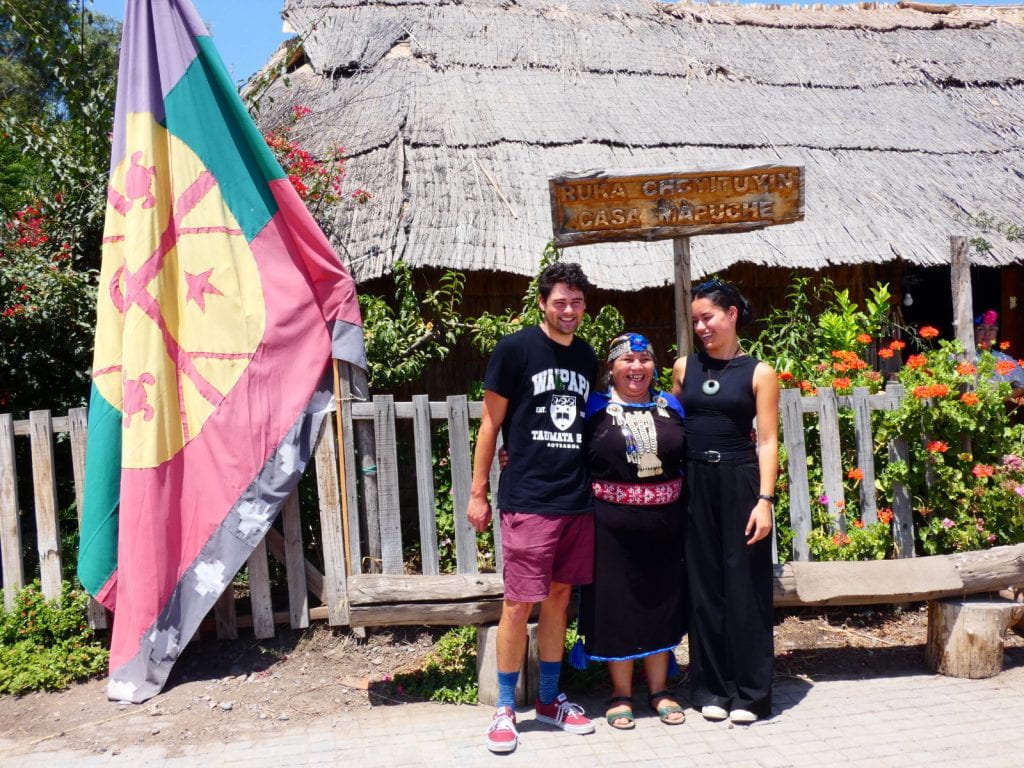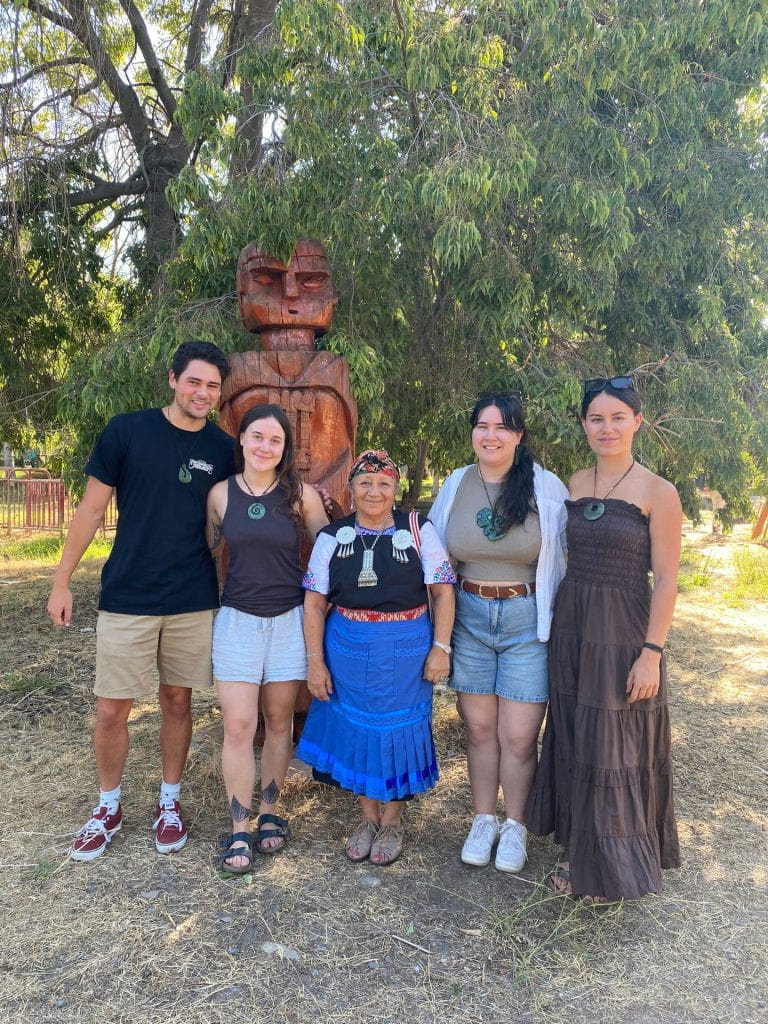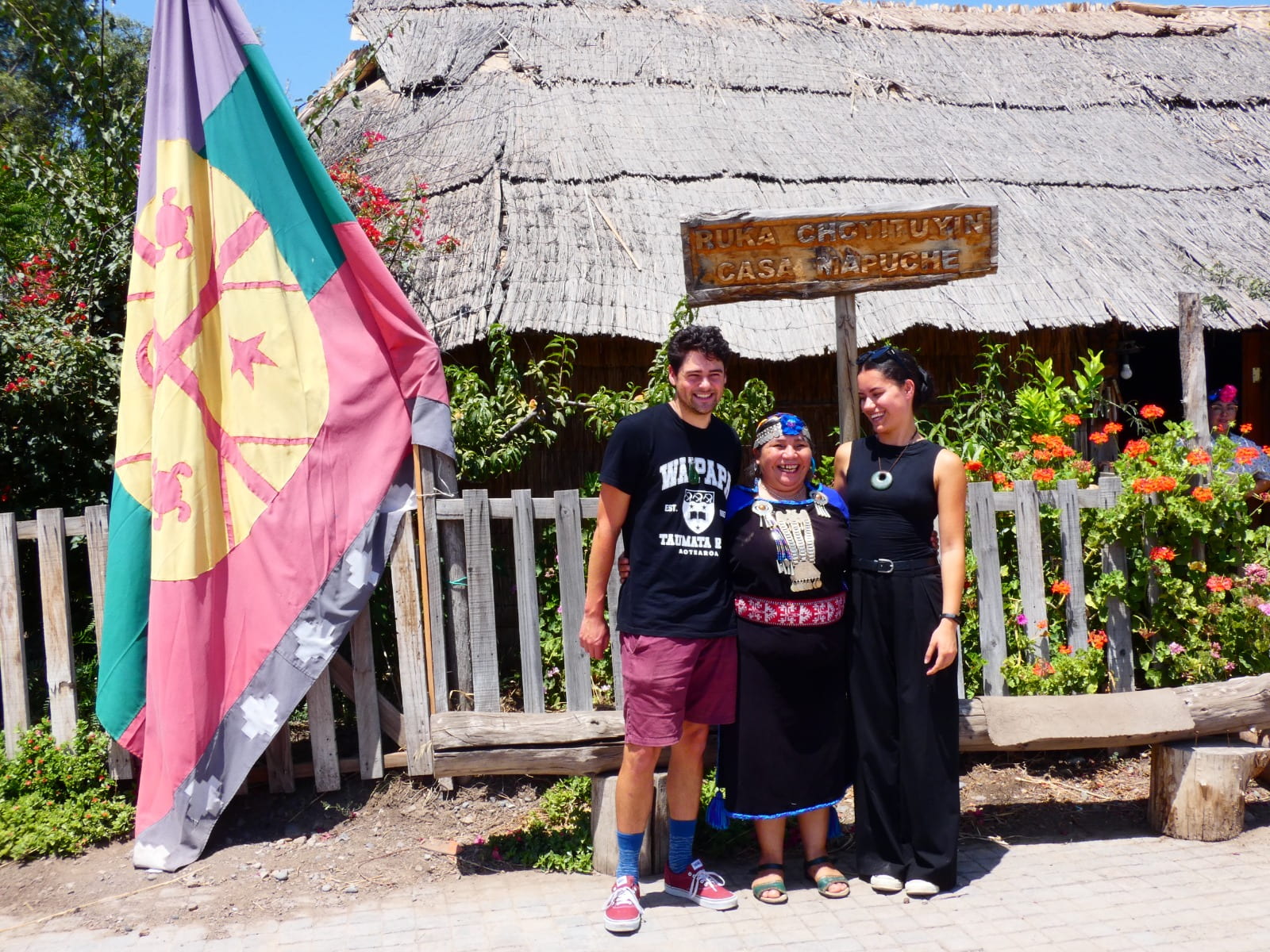
This week, we had the privilege of learning about diverse Indigenous groups in Chile in various contexts. These included in the classroom, at traditional Mapunche community houses or Ruka, an Indigenous-led health centre and through our visit to the Ministry of Health. In many ways, the week was emotionally overwhelming and challenging, learning about the processes of colonisation and the harms that are still perpetuated against Indigenous people here alongside their strength, resilience, aroha and manaakitanga.

On Monday and Tuesday in class, we had a short introduction to the 11 recognised Indigenous groups in Chile and learnt about some of the histories of colonisation here, the current socio-political climate and Mapuche and Aymara worldviews. Some interesting takeaways from these sessions included: After long wars of Spanish conquest, the Treaty of Quilin signed in 1641 recognised the Mapuche as independent with sovereign territory. In other words, Mapuche had their own country for hundreds of years. For many activists today, these established boundaries alongside this treaty are still viewed as a desirable outcome of decolonisation – a timely reminder of our own challenges to te tiriti.
Beyond that we were taught about Mapuche and Aymara worldviews and how these linked to healthcare. Similar to many other Indigenous cultures Mapuche and Aymara worldviews emphasises holistic conceptualisation of health beyond the tangible body to include mind and soul while health was further shaped that includes community and connection with the world and life forces.
Later in the week we visited the Ministry of health’s Indigenous, Intercultural and Immigrant health unit. This was an incredible opportunity to share knowledge about our respective countries Indigenous health systems and worldviews. This kōrero was pretty electric and we felt like we could be quite candid in what we shared about the difficulties faced in Aotearoa. This visit highlighted the importance to me of dialogue between countries and that we have so much to learn from other Indigenous Peoples given our shared struggles.
To end this blog post, I wanted to acknowledge what Juanita, one of the Mapuche, said to us all. After teaching us about the history of the processes of urbanisation and the accompanying discrimination, loss of connection to their culture and language, Juanita told us that Aotearoa was greatly admired and wanted us to know that despite the challenges of colonisation, they are still here, they are strong, they are still fighting for their rights.
Tautoko that!
